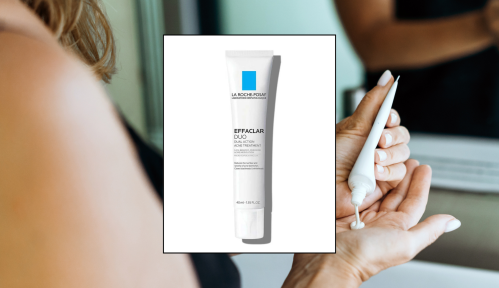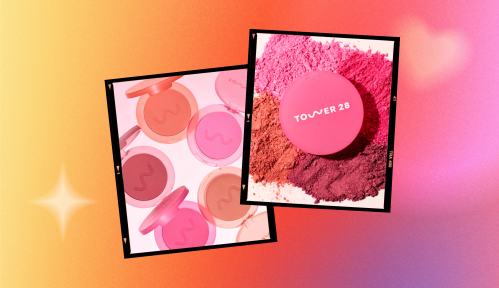Our editors independently select these products. Making a purchase through our links may earn Well+Good a commission
It’s hard to make decisions about your health when you don’t have all of the information. You’re probably not getting all of your questions answered during a 20-minute appointment with your doctor. And while turning to Dr. Google can be helpful, all too often it quickly sends you down a diagnostic rabbit hole that leaves you with more questions than when you started. Erica Chidi, doula and health educator, is looking to change that with the revamped, virtual version of Loom, a business focused on sexual and reproductive health education for people with vulvas.
Experts in This Article
doula, and CEO and co-founder of sexual and reproductive health education platform Loom
“Throughout all the work I was doing as a doula and health educator it was very clear to me that most women were operating in their bodies from a knowledge deficit,” says Chidi. “Most sexual and productive experiences for women are not disease-orientated. They’re not pathophysiological. They really are just normal functioning that most women don’t understand. That’s really where Loom is trying to fill that gap is by filling that knowledge deficit with education that is accessible, trauma-informed, compassionate, and most importantly actionable.”
Loom opened in 2017 as a brick-and-mortar space in Los Angeles that offered education classes, workshops, and events centered around sexual reproductive health. They cover topics including pregnancy, postpartum, periods, menopause, fertility, birth control, sex and intimacy, miscarriage, and abortion. Chidi and Loom co-founder Quinn Lundberg, a policy advocate, were often met with confusion about how they planned to tackle so many different topics within one business.
“All of these experiences can happen in one person,” says Chidi. “There’s so many businesses that just focus on pregnancy or just focus on fertility or just focus on menopause. I think that’s totally fine. I do feel like that is helpful, but I think really what we’re doing at Loom feels like that next step of saying, ‘we don’t have to go to all these different places to get that information.'”
For the new virtual version Loom, Chidi is starting with a pregnancy and postpartum course, with plans to later expand into more topic areas.
The pregnancy and postpartum course costs $90 and includes access to 22 in-depth videos, 31 audio conversations, and 39 written guides. It also comes with access to a monthly Q&A with Chidi, live community support sessions, and more. You’ll learn everything from the signs and stages of labor to negotiation skills for productive conversations with your doctor, midwife, and-or doula.
What sets this Loom course apart from traditional pregnancy and postpartum education is that it combines the two into one. “What we’re trying to focus on with this program,” says Chidi, “is really helping to support women from that first positive pregnancy test right through the first few months postpartum.” Plus, it takes an integrative approach to education, working to help people plug their lives into pregnancy versus plugging pregnancy into their lives. Bonus: “There’s no references to babies as fruit sizes.”
Chidi makes a point to center the health of the birthing parent rather than that of the baby. “It’s really about focusing on the mother, because that’s actually who is driving this process,” they say. “So much of the pregnancy-postpartum education that’s out here is very baby-centered…I think that’s what’s really shut people off from wanting to dive in and really soak up all the richness and information that’s available to them that can help optimize this entire experience.”
Two additional courses, one covering periods and menopause and another focused on sex and intimacy, are under development. The curriculum for Loom courses is created with practitioners and experts in the sexual and reproductive health space including OB/GYNs, reproductive psychiatrists, and pediatricians. The courses are all led by Chidi and feature conversations with various health experts and real people sharing their experiences. Users have unlimited access to the course for one year after purchase.
Chidi encourages everyone to take the new pregnancy and postpartum course, even if they aren’t or don’t plan to be pregnant.
“What we’re really most excited about is folks that are actually going to take the program and not even be pregnant,” says Chidi. “My real feeling as someone who actually doesn’t have children and has worked as a doula and an educator for such a long time in that space is [that] you should just know this. It’s really good to know even if you never do it. It’s good to know just for yourself as a human, but it also helps you be a more empathetic member of society and a better friend to folks that are eventually going to go through it.”
Oh hi! You look like someone who loves free workouts, discounts for cult-fave wellness brands, and exclusive Well+Good content. Sign up for Well+, our online community of wellness insiders, and unlock your rewards instantly.
Sign Up for Our Daily Newsletter
Get all the latest in wellness, trends, food, fitness, beauty, and more delivered right to your inbox.
Got it, you've been added to our email list.











